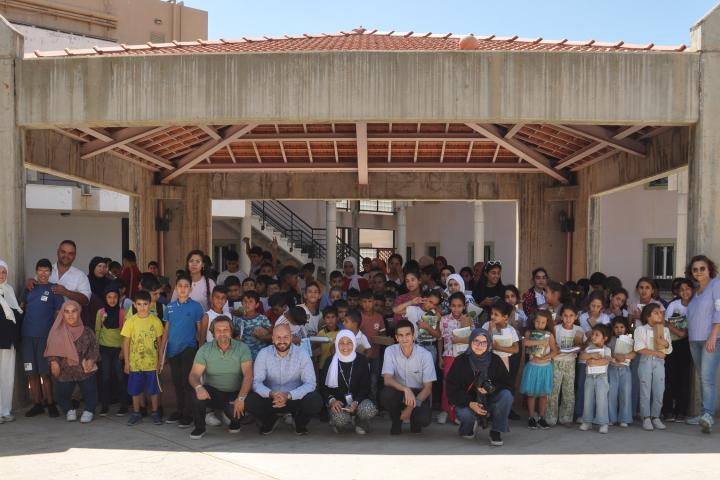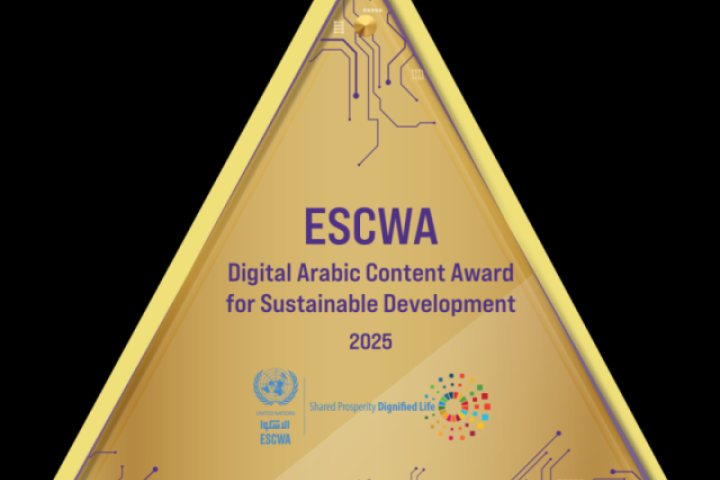Participants in the conference include speakers representing governmental as well as non-governmental agencies from 11 Arab countries, in addition to high level international and regional experts, academics and other stakeholders.
The conference, which started at LAU, continues its deliberations in the Beirut Commodore Hotel. It will close with a series of recommendations, which will be announced publicly at 2:30 PM, on Wednesday, the 10th of August 2016 at the Commodore Hotel Ballroom.
Speakers at the opening session were LAU President Joseph Jabbra; IWSAW Director Lina Abi Rafeh; ESCWA Centre for Women Deputy Director Mehrinaz El Awady and KVINFO Senior Advisor Connie Christiansen.
In his statement, Jabbra stressed that LAU is an educational institution founded by a woman for women, and that this institution as such shares the principles gender equality advanced by the UN agenda on Women, Peace and Security. On this front, he added that these issues have been gathering momentum since the year 2000, with the adoption of UN Security Council (UNSC) Resolution 1325. He added that between 2000 and 2015 the UN issued many resolutions to address these issues, noting that Resolution 1325 became very important because of the elements on which it is based i.e. Participation, Prevention, and Protection. “The tide has reached the shores of the Arab world,” Jabbra said, as the UNSC instructed that all these resolutions should be implemented. He stressed that women should have a say and the gender perspective should be taken into consideration. “We are active on the ground to educate people about women issues and what men are doing in this regard,” he said.
For her part, Abi Rafeh highlighted the findings of the 1325 global mandate review in 2015 of 15 years of work on women, peace, and security issues, saying that while there is a comprehensive normative framework in place, we are falling short in implementing this framework. “Since 2000, we haven’t made enough progress in increasing women’s engagement in peace processes,” she said, adding “and we don’t know enough about the diverse roles women play in peace, and war.” She underlined the insufficient representation of women in every aspect of the Agenda. “Year after year, we advocate for women in senior UN positions – including peacekeeping – and including the senior-most position! We’re not there yet. And our agenda is underfunded – as is the curse of all critical causes - particularly gender equality.”
Abi Rafeh stressed that engaging women in peace and security is a human rights mandate. She noted that for the Arab world, this is a historic moment, as there is global commitment and momentum to ending inequalities. “We have to commit at every level – in this region more than any other – and now more than ever (...) Studies show that the clearest predictor of peace in a country – or region – is not its wealth or its type of government – but how the country treats its women!” On this point, she pointed out the role of all to advance this Agenda, highlighting the part played by academia. “We now have degrees in women, peace, and security, academic collectives – and even entire institutes dedicated to this issue,” she said, adding that through IWSAW, LAU advances the Women, Peace and Security Agenda, and works with global stakeholders to promote these issues and bring about social and policy change. “Let us together demand an end to the normalization of violence everywhere – and in every form,” Abi Rafeh said.
In her statement to the conference, El Awady spoke of three lessons learned by ESCWA through its engagement with Arab States in the UN review process in 2015. She said, “Our engagement taught us many things. First of all, we can confirm that there is much to be gained from investing in a prevention scheme.” El Awady added, “The second issue that we learned from working with Arab States and communities is that women’s leadership is central for peace. There is a significant body of evidence to show that women’s active participation in peace processes correlate directly with the sustainability and quality of peace agreements and their chances of survival.”
El Awady concluded by saying, “Our experience has also shown that the development of national action plans is integral to advancing the Agenda. We have a framework to guide the work at the national level, we have the Arab Regional Strategy and Action Plan endorsed at the highest levels through the League of Arab States. And we have a wealth of knowledge produced by ESCWA, academia, other regional UN bodies and civil society organizations showing that progress is the result of well-designed and executed policies.”
In her address, Christiansen briefed participants on KVINFO, noting that the Centre has a vision of a free, equal and diverse society in Denmark and everywhere, and that it is partnering with women and gender organizations in the Middle East to further this issue and support women’s participation in economic and political life.
“Women in the Arab world need better protection in conflict and to participate with men on peace building,” Christiansen said. However, she noted that women in all parts of the world are massively underrepresented in processes of peace and security. She also underlined that in UN Resolutions on women, peace and security, it is pointed out that women and men are affected in different ways by conflict, adding that women must participate on the same footing as men in society. “Women are entitled to have influence on the formation of their own society before, during and after the conflict and are entitled to secure lives on a par with men,” she said. Christiansen concluded that in order to secure sustainable and long lasting peace, women are needed.
The conference aims to enrich and expand the debate on issues relating to women, peace, and security across the Arab region, with particular emphasis on the role of institutions in addressing this critical issue and engaging with the global agenda. The conference will also focus on opportunities to strengthen Arab women’s participation in peace-building processes across the region.
Over three days, the conference will discuss the roles and mandates of various national institutions in responding to the global Women, Peace, and Security Agenda. It will also emphasize the role of women in current peace processes in several Arab countries; their successes, limitations, lessons learnt and the way forward.
* *** *
For more information:
Nabil Abu-Dargham 70-99 31 44 (dargham@un.org)
Mirane Abi-Zaki 76-04 64 02 (abi-zaki@un.org)
For more ESCWA news, please visit:
Website: www.unescwa.org Facebook: www.facebook.com/unescwa Twitter: @ESCWACIU



